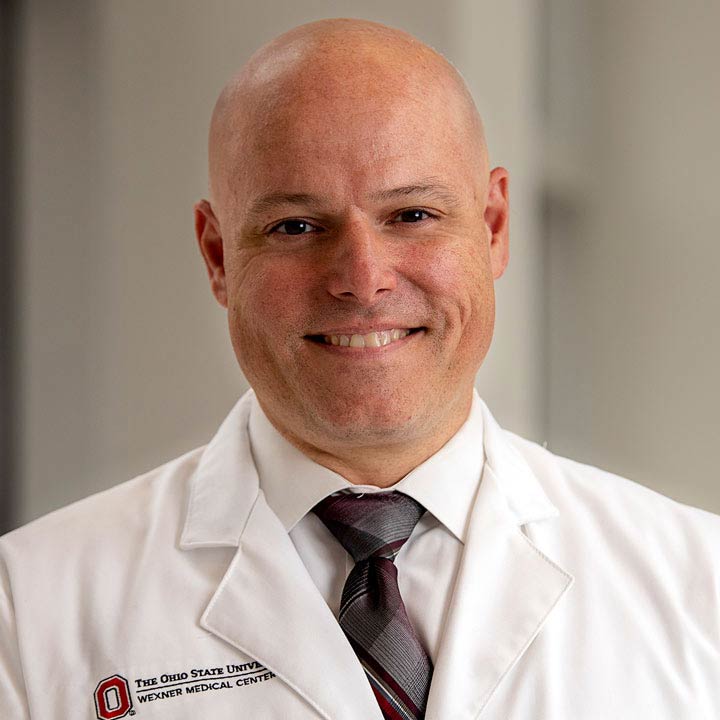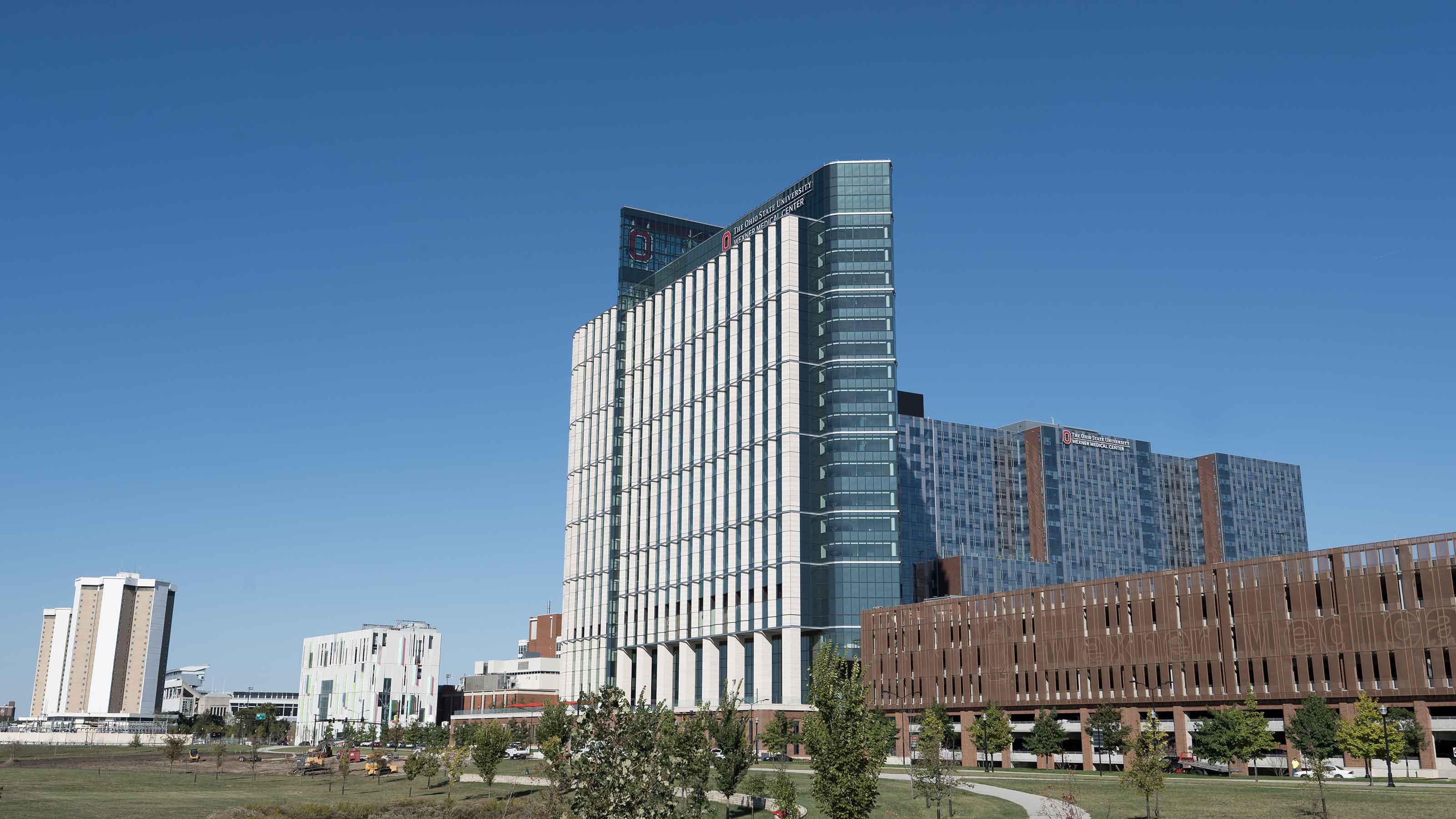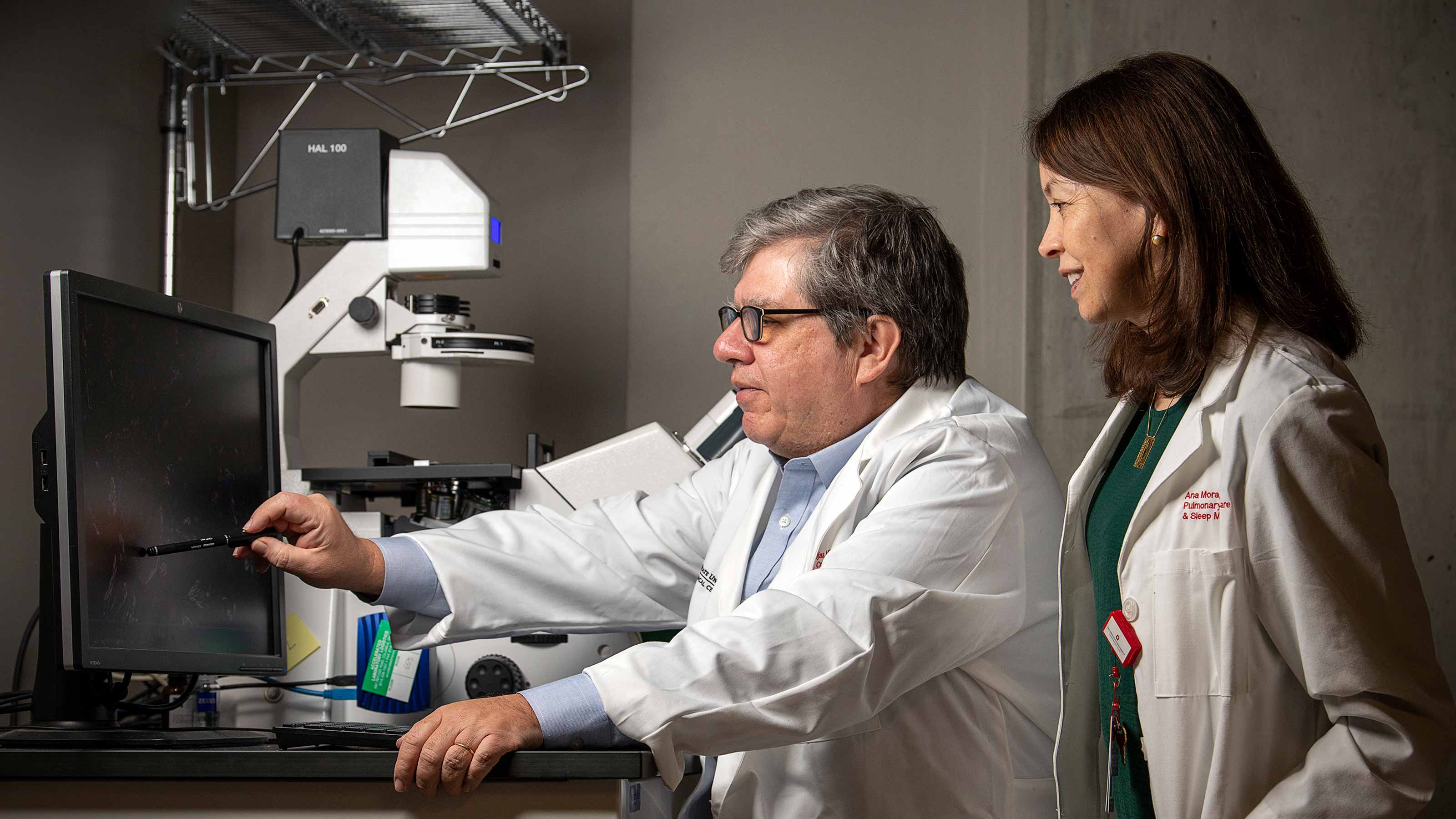
For most patients, a vascular surgeon isn’t the first doctor you call for a poorly healing foot wound or leg pain. But we might be who you need. Vascular surgeons treat every artery and vein in the body, with the exception of those in the heart and brain.
There are 60,000 miles of blood vessels in an adult body, which is the equivalent of two times around the earth. If you have a problem that is caused by a lack of blood flow to a vein or artery, your doctor will refer you to a vascular surgeon.
What is a vascular surgeon?
A vascular surgeon specializes in the diagnosis and treatment of diseases related to the vascular system, which includes arteries and veins. These tubes carry blood throughout your body. Damage to one blood vessel can affect an entire part of your body.
What are the most common reasons a person needs vascular surgery?
The two most common reasons for vascular surgery are:
- Blockages: when there’s no blood flowing due to conditions such as a clot or buildup of plaque (deposits of fat, calcium and other waste products) in the arteries
- Aneurysms: when a blood vessel gets too large
Why does a blood vessel enlarge and what happens if it ruptures?
Several medical conditions can cause blood vessels to enlarge or dilate. The most common is high blood pressure, which can cause blood vessels to become weak and dilate. This can lead to an aneurysm — a bulge in the wall of a blood vessel that is at risk of rupturing. Smoking is another common cause of blood vessel enlargement.
Depending on where the blood vessel is located, a rupture can cause bleeding. It can threaten an arm or leg. It can be life threatening if a blood vessel ruptures in a critical area, such as the brain or the aorta (the main artery that carries blood from the heart).
What conditions does vascular surgery treat?
Vascular surgery may be performed for patients with vascular diseases such as:
- Peripheral artery disease (PAD), or disease of blood flow to the limbs
- Carotid artery disease
- Mesenteric artery disease affecting blood flow to the bowels
- Aortic aneurysms of the belly or chest
- Atherosclerosis balloon angioplasty and/or stenting
- Aortic and peripheral vascular endovascular stent-graft placement
- Balloon angioplasty and/or stenting
- Diseases of veins (varicose veins, venous insufficiency or deep vein thrombosis)
- Thoracic outlet syndrome (compression of nerves and blood vessels at the shoulder)
- Thrombolysis
How common is vascular surgery?
If your doctor refers you to a vascular surgeon, you are not alone. Nearly half of the adult population has cardiovascular disease.
If you smoke or have diabetes, you are at a higher risk for needing treatment from a vascular surgeon. This is because smoking and diabetes can cause plaque to form in your arteries, which can cause blockages.
A referral to a vascular surgeon does not necessarily mean you will need surgery. Vascular surgeons also treat patients with medical consultations and medications.
Whether or not you will need vascular surgery depends on your overall health and the severity of your condition. Making healthy lifestyle changes, such as exercising or quitting smoking, can significantly reduce the risk of conditions that require surgery.
How does a person typically get referred to a vascular surgeon?
Most patients are referred to vascular surgeons by other doctors who identify the source of their problem. This can happen when you visit your podiatrist for a foot wound that’s not healing, or you complain to your primary doctor that your legs hurt all the time, which could be a sign of peripheral artery disease.
There are times, in the case of a trauma — such as an automobile accident — when a vascular surgeon is called into emergency surgery.
When you are referred to a vascular surgeon, your doctor will diagnose and recommend the best treatment for your condition. This can range from relatively minor issues, such as varicose veins, to more serious problems, such as aneurysms or arterial blockages. Surgery isn’t always the best option. At The Ohio State University Wexner Medical Center, we try to pursue the least-invasive options first before exploring surgical options.
What are the different kinds of vascular surgery?
There are many different types of vascular surgery. Some common types of vascular surgery include:
- Endovascular surgery: This surgery is performed using a catheter, which is a long, thin tube that is inserted into the body through a small incision. Endovascular surgery is often used to treat diseases of the arteries, such as aneurysms or blockages.
- Open surgery: This surgery involves making a larger incision in the skin to access the blood vessels. Open surgery may be used to repair or replace damaged blood vessels or to remove blockages.
- Vein surgery: This surgery is used to treat problems with the veins, such as spider veins, varicose veins or blood clots. Vein surgery may involve removing or closing off damaged veins or rerouting blood flow to healthy veins.
- Aortic surgery: This surgery is used to repair or replace the aorta, the main artery that carries blood from the heart to the rest of the body. Aortic surgery may be necessary to treat an aortic aneurysm or to repair a damaged aorta.
- Carotid artery surgery: This surgery is used to treat blockages or narrowing in the carotid arteries, which are the main arteries in the neck that supply blood to the brain. Carotid artery surgery may be necessary to prevent strokes.
What to expect during vascular surgery
Prior to surgery
Your physician will do an evaluation of your heart, lungs, circulatory system, kidneys and gastrointestinal system. The decision whether to have surgery or not is based on the outcome of these evaluations.
Prior to surgery, you’ll meet with your surgeon to discuss your medical history, the medicines you take and any questions you have about your procedure.
After the procedure
Recovery time varies with each surgery and depends on a variety of factors. Like any part of your body that has been injured, your surgical site needs time to heal and mend itself.
After minor surgery, a patient will ideally return to normal activities within a few days. For larger surgeries, it may take several weeks or more.
Your physician or vascular surgeon will give you the special instructions you need to follow after your surgery. Cardiac rehabilitation may be required.
What are possible complications from vascular surgery?
Vascular surgery can range from a simple cosmetic procedure to repair varicose veins to a major aortic repair. As with all major surgeries, there are inherent risks, and surgery should be assessed to ensure that the benefit of the surgery outweighs the potential risks. For a patient who needs a leg bypass, for example, the risk of not repairing the blood flow with surgery can be amputation of the limb.
Patients who smoke, have diabetes or are obese are at greater risk of cardiopulmonary complications from surgery, such as a heart attack or pneumonia. There are also complications that can occur at the surgical site, such as an infection or bleeding.
Be sure to follow your surgeon’s postoperative instructions after vascular surgery. This may include taking medications as prescribed, following a specific wound care regimen and attending follow-up appointments. It is important to report any unusual symptoms or concerns to your doctor.
How can I prevent needing vascular surgery?
Many cardiovascular diseases can be prevented by addressing modifiable risk factors such as smoking, diet and obesity, physical inactivity and too much alcohol. Regular medical checkups can monitor your blood pressure and overall health. Your doctor may also prescribe medications such as statins that can reduce your risk of worsening cardiovascular disease.
What questions should patients ask their vascular surgeon?
I encourage patients to seek a board-certified vascular surgeon at a reputable hospital. Large academic health centers, like the Ohio State Wexner Medical Center, have dedicated teams of board-certified vascular surgeons, nurses and staff trained in the care of vascular patients, and state-of-the-art equipment and facilities to perform the most complex vascular surgeries.
Patients should ask about their surgeon’s experience dealing with their condition. Ideally, patients should come to their vascular surgeon asking what would be the best option for the long term, as sometimes rushing to surgery may not be ideal.

Your heart is in the right place
Learn more about advances in care and treatment for patients at The Ohio State University Heart and Vascular Center.
Expert care starts here




